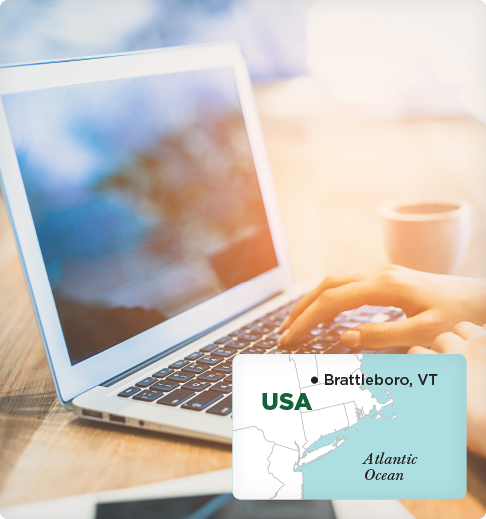Credits
33 minimum
Format
Part-Time Hybrid
Residencies
United States
This program is not enrolling new students
Duration
2 Years
Critical Global Issue of Study
Students may focus on any
critical global issue, depending
on their chosen curriculum.

This program is not currently enrolling new students.
33 minimum
Part-Time Hybrid
United States
2 Years
Students may focus on any
critical global issue, depending
on their chosen curriculum.
SIT’s MA in Intercultural Service, Leadership, and Management enables you to learn the knowledge and develop the skills you need to address critical global issues in development, identity, geopolitics, justice, environment, health, education, and social justice.
Self-design your own experiential learning, earning your master’s degree online with a brief residency in Vermont and working closely with a faculty advisor to address your career objectives. The Intercultural Service, Leadership and Management master’s degree from SIT allows you to hone your leadership skills across interpersonal, team, community, and global arenas.
Undertake 10 to 15 hours a week of SIT’s carefully developed, immersive online coursework, in collaboration with other students in your cohort. Your studies may include in-depth explorations of leadership and change; international education and training; sustainable development; gender equity; humanitarian assistance, language education; and policy advocacy.
During this two-year program you will determine a focus for your degree and your future professional skills set as you take courses online and in a variety of international locations with SIT professors around the world, attend experiential learning summer residencies on our Vermont campus, and pursue your own research and fieldwork.
Because of the interdisciplinary nature of this unique degree and your ability to make individual choices within it, the range of skills you will develop will be based entirely on your learning plan, which is created with your career goals in mind.
As part of the program, you will reflect on your past and current work experiences and will complete an independent research paper or project, all designed to provide you with on-the-job experience and the ability to expand your professional network.
Whether you are exploring, building on, or just starting a new profession, this one-of-a-kind master’s degree prepares you for a challenging and rewarding career in fields such as international education; refugee resettlement; humanitarian assistance; research and policymaking; or sustainable development.

Read about SIT Graduate Institute alumni careers through the SIT blog and our Career Impact page. Students who have graduated with this degree work in careers such as the following, among others.
Cultural sustainability specialist
Development coordinator at NGO or nonprofit
Refugee resettlement case manager
Immigration outreach coordinator
Community health worker
Prevention educator or facilitator
Director or manager of human resources
Program director, manager, or specialist


Students in this program are able to live anywhere in the world while they pursue their master’s degree online and in person. Depending on the courses they choose, students may have the opportunity to spend time on our Vermont campus or, if they pursue a field course, elsewhere in the world.
Vermont is at the forefront of sustainability, education, and regeneration. New England is a haven for start-ups, transition towns, community-owned forests, artisanal food and beverage companies, sustainable farming, eco-architecture, green energy, and many environmental and social-justice organizations. SIT’s beautiful southern Vermont campus offers woodland trails, hiking, running, and cycling, as well as a private library, study rooms with mountain views, and an entertainment space where students often gather at the end of the day to socialize. You will also be a few miles from downtown Brattleboro, which offers an array of shops, restaurants, and eateries.
Please note that in order to take advantage of dynamic learning opportunities, program excursions may occasionally vary.
Upon successful completion of the program, students will be able to:
Courses will be completed in small personalized cohorts.
The courses below reflect a wide range of options for each student, who will earn a maximum of 8 credits per semester. Courses with an asterisk require the student to travel to our campus in Vermont, or an international location. Please check SIT’s Catalog to verify prerequisite requirements. Specific courses offered each term may vary.
The following courses are required of all students in this program:
*Courses with residency requirements


SIT’s Student Financial Services Office provides guidance on all aspects of funding your degree throughout the application process and during your degree program. Tuition costs vary by program and scholarships are available.
See Full Breakdown